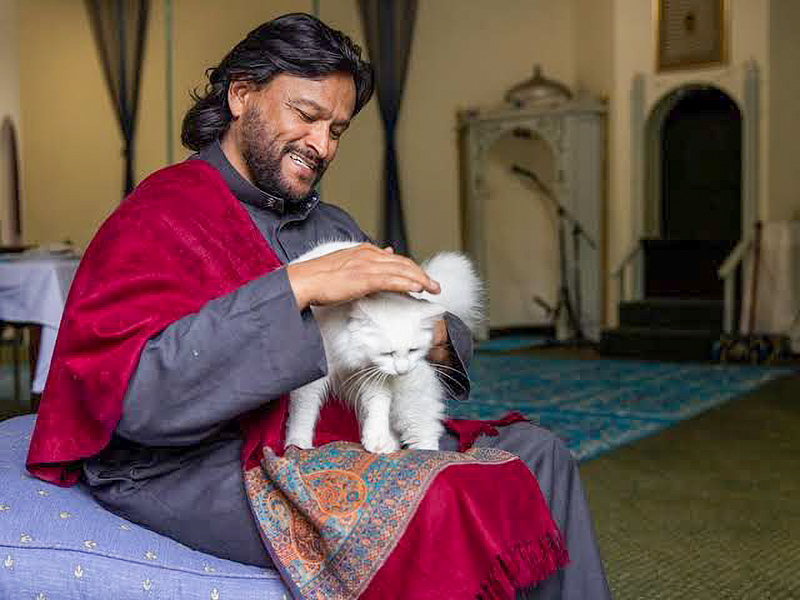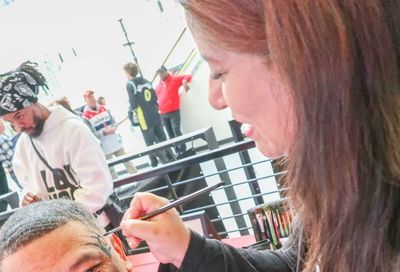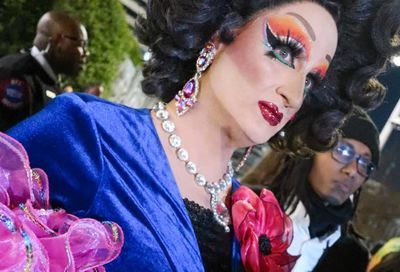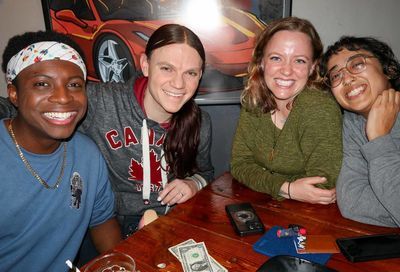Indecent Practices
A travesty in Malawi highlights how injustices a world away hit us where we live
On May 20, Steven Monjeza and Tiwonge Chimbalanga were sentenced to 14 years hard labor in Malawi for ”unnatural offences” and ”indecent practices between males.” As they were handcuffed to each other and led from the courtroom, a large crowd jeered them. Chimbalanga remained composed and said, ”I am not worried,” but Monjeza sobbed.
British activist Peter Tatchell reported that Monjeza ”is thin and weak and has jaundiced eyes, according to an eye-witness who saw him last weekend.” Amnesty International has declared Monjeza and Chimbalanga prisoners of conscience, and calls their sentence an outrage.
In January, several dozen African civil society organizations denounced the trial and demanded repeal of the colonial-era penal code provisions that were used. They said that ”the arrest and prosecution of Monjeza and Chimbalanga not only undermines the response to HIV but is a violation of the fundamental rights enshrined in the Malawian Constitution.” Malawi’s HIV-prevention programs targeting men who have sex with men are not helped by driving this population further underground.
The anti-gay furor continues across Africa. For example, LGBT Asylum News reported Saturday that Zimbabwean police raided the headquarters of Gays and Lesbians of Zimbabwe, arresting two employees and seizing computers and other materials. The employees, Ellen Chademana and Ignatius Muhambi, have been denied access to lawyers. There are health concerns about Chademana, who is diabetic. The official who ordered the raid has been implicated in disappearances and illegal detentions. Meanwhile, Prime Minister Morgan Tsvangari, in uneasy coalition with President Robert Mugabe, opposes protections for gay people.
We have leverage we can use. Western governments should make continued foreign aid contingent on repealing discriminatory laws. Ugandan President Yoweri Museveni’s tardy and expedient opposition to that country’s ”kill the gays” bill shows that outside pressure can work if it makes a murderous policy more costly to an oppressor than it is worth.
We can also do better for those fleeing anti-gay persecution. The British Home Office last week stated, ”The new Government is committed to stopping the deportation of asylum-seekers who have had to leave particular countries because their sexual orientation or gender identification puts them at proven risk of imprisonment, torture or execution.” Turning this welcome statement into reality will require the Home Office to stop its practice of claiming that asylum applicants can safely return to their countries of origin if they hide who they are. By that logic, Monjeza and Chimbalanga are being punished not for loving each other, but for being indiscreet. Are we willing to accept such an insult from a government that claims to respect our rights? If we do, then we deserve to be in Chichiri Prison in Steven’s and Tiwonge’s place.
The U.S. Board of Immigration Appeals is similarly dysfunctional. Its denials of gay asylum claims are regularly overturned on appeal.
British officials have also invoked fears of asylum seekers faking gay relationships. Some U.S. politicians have raised the same fear to avoid supporting the Uniting American Families Act (UAFA), which would allow Americans to sponsor their foreign partners for a green card. What except bias could explain why procedures used to verify straight couples are no good for gay ones?
Letters can be lifelines. Write to Tiwonge Chimbalanga and Steven Monjeza, Prisoners, Chichiri Prison, P.O.Box 30117, Blantyre 3, Malawi. Then visit outrage.org.uk and click on ”Action Alert” to learn how to contribute to the Malawi Defence Campaign, organized by the British LGBT group OutRage!, which says it ”will use all money donated to support Tiwonge and Steven with food parcels, medicine, clothes, blankets etc. and to help fund the campaign for their release.”
Seeing the news photo of the two Malawi lovers handcuffed together was heartbreaking. It would be indecent if those of us with greater freedom failed to raise our voices on their behalf.
[Update: Peter Tatchell reports that Monjeza was transferred this week to Zomba Central Prison, separating him from Chimbalanga.]
Richard J. Rosendall is a writer and activist whose work has appeared on Salon.com and the Independent Gay Forum (www.indegayforum.org). He can be reached at .
Support Metro Weekly’s Journalism
These are challenging times for news organizations. And yet it’s crucial we stay active and provide vital resources and information to both our local readers and the world. So won’t you please take a moment and consider supporting Metro Weekly with a membership? For as little as $5 a month, you can help ensure Metro Weekly magazine and MetroWeekly.com remain free, viable resources as we provide the best, most diverse, culturally-resonant LGBTQ coverage in both the D.C. region and around the world. Memberships come with exclusive perks and discounts, your own personal digital delivery of each week’s magazine (and an archive), access to our Member's Lounge when it launches this fall, and exclusive members-only items like Metro Weekly Membership Mugs and Tote Bags! Check out all our membership levels here and please join us today!






















